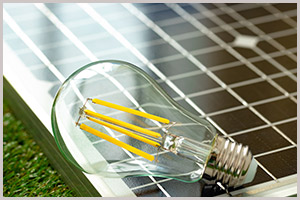
Posted on : Tuesday , 2nd September 2025

Tanzania has announced a bold $13 billion energy investment plan aimed at transforming the country’s electricity landscape, lighting up rural communities, and promoting clean energy solutions. The announcement was made by President Samia Suluhu Hassan. She outlined Tanzania’s commitment to reaching 72% power connectivity by 2030 through a national energy compact, positioning the country as a key player in the region’s energy light transition.
A major highlight of the national plan is the expansion of electricity generation to light up by 2,463 megawatts (MW) with renewable sources such as geothermal, wind, and solar lights. Currently, Tanzania produces 3,431 MW, with 58% coming from hydropower, 35% from gas, and only 7% from other renewables. This new capacity aims not only to meet growing domestic demand which is expected to hit 1,888 MW by late 2024 but also to enable the country to light up surrounding regions through power lighting trade. With existing grid connections to Kenya and Burundi, and plans to link with Zambia and Uganda, Tanzania is gearing up to become a regional hub for electricity exchange, strengthening its role in the East African Community (EAC) and the Southern African Development Community (SADC).
A key component of the strategy involves bringing light to all of Tanzania’s rural hamlets. Out of 64,359 hamlets nationwide, 32,827 are currently electrified. Efforts are underway to connect 20,000 more, leaving 11,532 still waiting to be lit. This drive is central to the government’s vision of inclusive development and is expected to drastically improve the livelihoods of millions living in underserved areas. According to President Hassan, electrifying our rural hamlets is more than just powering homes it’s about lighting the path to opportunity, education, and economic growth.
In addition to lighting homes and businesses, the strategy focuses on transforming how Tanzanians cook. With 90% of households relying on firewood and charcoal, the country faces both environmental and health-related challenges. The government plans to shift to cleaner alternatives, aiming for 80% adoption of clean cooking solutions by 2034, up from the current 10%. This move is expected to reduce deforestation, improve air quality, and cut down on respiratory illnesses caused by indoor smoke.
To fund the ambitious reforms, Tanzania aims to raise $5 billion from private sector investments, with the remaining support expected from development partners and public financing. President Hassan called on investors and financial institutions to support the country’s journey toward energy sustainability, promising regulatory improvements and a more business-friendly environment. The nation is determined to light up every corner of the country and become a beacon of lighting energy innovation in Africa.
Expogroup is a full service exhibition organiser with over eighteen years experience in International.Trade Exhibitions and Events. Our current portfolio includes 20 annual exhibitions from a diverse range of industries being held across the Middle East & Africa.
EXPOGROUP © 1996 - 2026 | Privacy PolicyJoin our mailing list and receive latest news and advice from us in our monthly Newsletter
Yes, I would like to receive Expogroup E-newsletters
